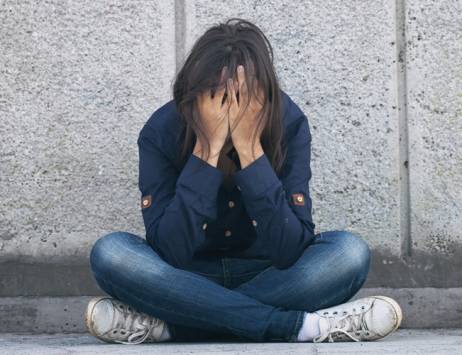Recent studies suggest that over 40 million Americans suffer from some form of anxiety disorder. That number, which represents roughly 18 percent of the population, probably doesn’t surprise you. Anxiety is practically a natural byproduct of the culture we live in.
A Steady Stream of Bad News
Blame the 24/7 news cycle. Positive stories—the kind that ease your mind and make you feel good about the human race—work well as fillers and occasional features, but they don’t keep people watching. Outrage and catastrophe are what draw viewers. So networks deliver a steady stream of graphic images and dire reports designed to make you fear your safety, your way of life, your country and the future of the human race. Washed away in the endless tides of breaking news are Jesus’ words in Matthew 6:34: “Therefore do not worry about tomorrow, for tomorrow will worry about its own things.”
Social Media Addiction
Blame social media. If Facebook, Twitter, Instagram and Snapchat are to be believed, most of the people you know …
- look fitter, happier and healthier
- travel to more exotic locations
- eat more photogenic food
- rub shoulders with more famous and attractive people
- have more successful spouses and kids
- lead far more exciting, fulfilling and purpose-filled lives
… than you do.
If you buy into the myth that social media reflects reality, you may convince yourself that your life somehow pales in comparison to other people’s lives. You may wrestle with feelings of discontent or inadequacy. You may wonder what you’re doing wrong. That’s when anxiety tends to rear its ugly head.
Real Life Stress
Not all anxiety is triggered by distorted reality, of course. Sometimes anxiety is an understandable reaction to an exceedingly troubling situation. Perhaps your student debt is ballooning beyond your ability to repay it. Or you realize you can’t support your family on your current salary. Or a loved one suffers a catastrophic illness. Or the IRS notifies you that you’re being audited.
Our culture is like a minefield of anxiety. One wrong step can have catastrophic consequences. What’s a person to do?
The wisest course of action is to defuse the mines that surround you. If you eliminate (or even reduce) their destructive potential, you can begin to create a safer environment for yourself.
Three ways you can defuse your minefield of anxiety
1. Schedule regular social media “cleanses”
Eliminating social media from your life completely may not be a practical solution. But giving yourself time away from it certainly is. Periodic weeklong cleanses, in which you shut down your accounts and spend time away from your screens, can do wonders for your emotional health. Think of them as anxiety detox sessions.
2. Stay engaged, but not enraged
Turn a discerning eye toward the online news sites you visit or the television newscasts you watch. Pay attention to their efforts to provoke anxiety through sensationalism or rhetoric. Stay informed, but guard yourself against emotional manipulation. If you start to feel overwhelmed by negativity or hopelessness, balance your news gathering with more upbeat stories. Take control of your news consumption.
3. Dig down to the roots of your anxiety
No two people experience anxiety in the same way—or for the same reason. Depending on your situation, your anxiety may be the result of
- a fear of abandonment
- a fear of failure
- a traumatic event in your past
- the death or loss of a loved one
- an upheaval in your normal routine
or something else entirely.
Triggers for your anxiety may involve anything from crowds to your child’s academic struggles. If you’re not sure where your anxiety comes from or what triggers it, talk to a counselor or therapist. The more you understand about your enemy, the better equipped you’ll be to battle it effectively.





